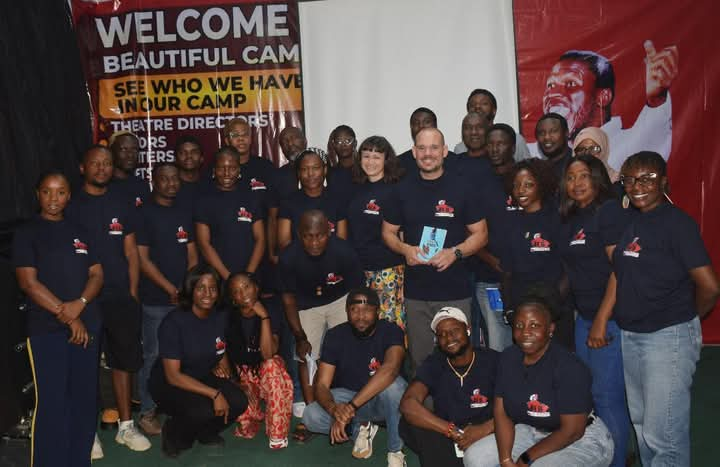Publish, pay, pray: How researchers fund knowledge while others profit

By Mohammed El-Nasir Al-Amin
THE 21st-century researcher lives in an ironic economy. On one hand, she is exhorted to publish or perish, told that the lifeblood of academic credibility flows through Q1 and Q2 journals. On the other hand, the very act of publishing has become a costly ritual: researchers spend scarce funds to conduct studies, then pay article-processing charges (APCs) to share them, only to discover that the publishers and digital platforms are the ones reaping financial reward. To complicate matters further, generative AI (GenAI) companies now ingest and monetise these scholarly outputs by building subscription-based services that attract paying users worldwide. The knowledge producers remain uncompensated, while publishers and tech corporations enjoy the profits. This paradox calls for urgent critique, especially as academia risks becoming the unpaid labour force for global information empires.
The business model of major publishing houses is as elegant as it is exploitative. In Nigeria, though some universities fund the research process, but in most cases individual scholar, fund the research process, then write and peer-review without payment, and then publishers charge thousands of dollars in APCs for Q1 or Q2 journal acceptance. Libraries and institutions, in turn, pay hefty subscription fees to access the same research. Companies like Elsevier’s parent, RELX, consistently report profit margins that outperform most industries, confirming that scarcity can be engineered even in a world of digital abundance (RELX, 2023). The “open access” movement, once heralded as liberation, has often shifted the burden of cost from readers to authors, thereby ensuring that somebody always pays, and it is rarely the publisher.
Enter generative AI, the newest player in the knowledge economy. Large language models are trained on vast corpora of text, including peer-reviewed articles, to refine their fluency in technical and academic discourse. Commercial platforms then sell access to AI tools via premium subscriptions and APIs. The irony is palpable: researchers’ painstakingly written articles are digested to power services that generate revenue for tech companies, while the original authors receive no royalties, licensing fees, or compensation (Authors Guild v. OpenAI, 2023). What is euphemistically labelled “fair use” has in practice become large-scale data extraction: academics provide the curriculum, while AI firms sell the classroom.

Dr. Mohammed El-Nasir Al-Amin
Academic researchers already give away significant unpaid labour in the form of peer review, editing, and conference organisation. Under the current system, these efforts are transformed into profitable commodities for both publishers and AI firms. The result is a peculiar inversion of value: knowledge creators subsidise the system, while intermediaries monetise it. The researcher pays to publish, pays to access, and indirectly pays again when their work is ingested by AI tools for resale. Meanwhile, the subscription meters of publishers and tech companies continue spinning.
The knowledge economy has reached a paradoxical stage where the people who create knowledge: researchers, are the only ones not compensated for its financial value. Instead, they are expected to accept prestige and citation counts as sufficient reward, while publishers boast of soaring profits and AI firms market “intelligent services” built from unpaid intellectual labour. Left unchecked, this cycle will deepen inequalities in knowledge production, particularly disadvantaging scholars in the Global South, where research funding and APC resources are already scarce.
I will recommend that the rebalancing of this lopsided system requires collective effort at institutional, national, and global levels. One crucial step is the negotiation of collective licensing agreements with AI companies. Universities, research consortia, and even national governments can insist on contracts that ensure AI platforms pay for the scholarly material they exploit. By pooling bargaining power, researchers can transform their vulnerability into leverage, preventing their work from being used as free training data for profit-driven enterprises.
Equally urgent is the regulation of APCs. At present, publishing houses set arbitrary and often exorbitant fees, turning prestige journals into gated communities for those with wealthy institutions or international grants. Funding agencies and professional associations could cap these charges or establish subsidies, thereby ensuring that research visibility is not determined by financial privilege. Such regulation would also reduce the double burden on researchers who already finance their own fieldwork, equipment, and data collection.
Thirdly, another reform lies in copyright and rights retention. Too often, scholars sign away their intellectual property in the name of journal prestige. A shift towards rights-retention policies, where authors keep the right to determine how their work is reused. This would allow them to control its exploitation in AI training sets or digital subscription platforms. Universities should lead this push by adopting policies that make rights retention a default expectation rather than a radical exception.
Also, the development of alternative publishing models also presents a pathway to equity. Non-profit, community-driven journals and open repositories could be supported with sustainable funding from universities and governments. These models would dismantle the stranglehold of commercial publishers, creating knowledge spaces where the costs are shared more fairly, and the benefits remain within the academic community.
Finally, policy reform at international levels is indispensable. Governments and organisations such as UNESCO or the World Intellectual Property Organization must update copyright and digital-use frameworks to reflect the realities of AI training and online publishing. Clear guidelines ensuring remuneration for knowledge creators will prevent the unchecked commodification of research. Without such structural intervention, scholars will remain perpetual donors to an economy where others endlessly cash out.
Until researchers are paid as much as they publish, knowledge will remain the world’s most expensive free gift.
* Dr. El-Nasir Al-Amin teaches at the Department of English, Kwara State University, Malete (elnasir.alamin@kwasu.edu.ng)




